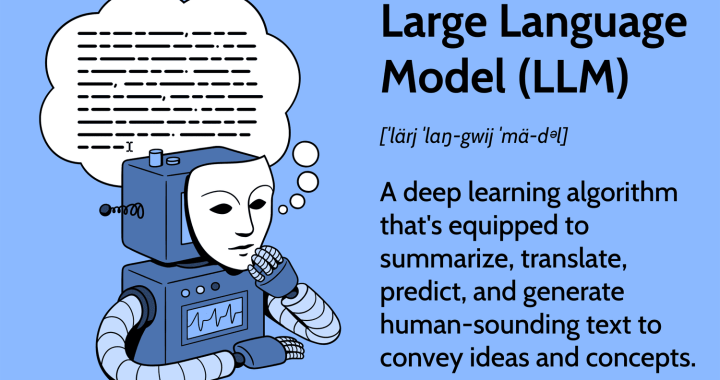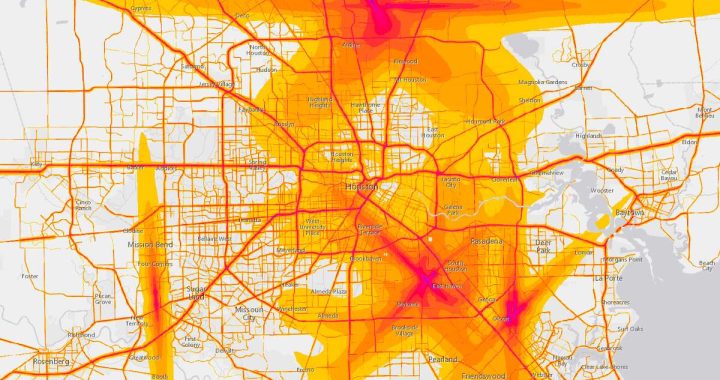Pasó así, Papá, y aunque pese, como lo viví te lo narro, en inglés:
Completely cut off from chance, no hope, only needs and responsibilities. I got home at 1 PM from working a four-hour at the language school. I would talk about that shift later in the day, when it came to answering the interview questions for the Y interview, which was supposed to be at 5 PM.
The phone call yesterday: “We share our office with Flushing International High School. Are you available at, say, 4 PM?”
I said “no” politely, and asked for 5 PM.
“Do or die, Bed-Stuy,” as the rap line goes: my home, Brooklyn. But my interview was in Queens. I had a bowl of rice. A run. A shower. A story submission. A nap. Then a sandwich. By 3:30 I stepped out of the house, jacket over my arm, wrinkled, pants still wet from scrubbing out a stain.
Because I had set my reminder—“print out resume”—for noon, but I had left work at 11:57, I needed to stop by a printing service office before my interview.
Do I really need a second job, I murmured, walking past my usual metro station, towards a printing place. Couldn’t I get by with just the one?
This feeling hasn’t left me, not even now as I write: the need to write and the need to be recognized, both as constant as they are unyielding. Years ago I told myself I would be somewhere by now: as vague as that sounds is as concrete as I felt it. Old enough to be taken seriously, twenty-seven, if only I would have chosen a path others envy, instead of one that they spit spitballs at. “Writer?” No heed, I continued. Writer, yes. Always follow ye gut. Always. (Como me habías contado una vez, volviendo de la taquería en Kirby: es importante sentir, sentir es verdad.) Which led me here. Counting “instead”s over “thank-you”s. Instead of listening to my exes and quitting my path, instead of doing something sensible, instead of relegating my vanity, I risk my youth on a passion. Except yesterday. Instead of spending the afternoon drinking yerba mate over my keyboard, I darted over the cracks of the relentless broken sidewalks of a neighborhood I don’t feel I belong in. Here there sleeps a violence that maybe at any moment could explode. “You know why,” C told me later, after the interview. “Your neighborhood is changing.” (C, la quien rara vez no tuvo razón.) Darting, I looked both ways before crossing a street and seeing new cafés, high rises, before seeing the whites and the blacks ignoring one another, no one saying hello, only sweating. Wife-beaters wavering in the hot summer air. Cuffed jeans torn at the knees. On my chest two pairs of wings from my nervous perspiration, my watch counting down the time, my phone in my hand.
“GQ Printing?” I asked the security desk. “Unit 855?”
“That’s the eighth floor,” he said. I almost forgot where I was, Brooklyn; who I was on the phone with, mamá.
We talked as I roamed around lost inside this mega complex of too many small businesses. I was in a hurry. I was short of breath and temper. I hate being short with mamá, but she refused to answer the phone when I called her at 2 with patience and time. So we caught up at her convenience.
“Te deposito plata,” she said.
My chest churned. “Me salvás.”
De pedo, the “GQ printing” office was closed. I had 60 minutes until 5 PM.
The train ran express. My life whirled. I focused my energy on turning the pages of Oscar Wao, which wowed me so much I had to put it down for ten minutes and ponder a passage.
“Those were the early Clinton years but the economy was still sucking an eighties cock and he kicked around, doing nada for almost seven months, went back to subbing at Don Bosco whenever one of the teachers got sick. (Oh, the irony!) He started sending his stories and novels out, but no one seemed interested. Still, he kept trying and kept writing. A year later the substituting turned into a full-time job. He could have refused, could have made a ‘saving throw’ against Torture, but instead he went with the flow. Watched his horizons collapse, told himself it didn’t matter.”
I wish I could write like Junot, I don’t tell myself. I am so happy to read, I think. Immensely pleased, even if this was my third one-hour train ride, with another ride after the interview to go. I am immensely pleased. C gifted me the book. I twisted the pages like a rag over my lap as my eyes water in public, recalling the lines about collapsing horizons, about my life, about how I never imagined myself being a teacher, about how education chose me, about how I went with the flow, about how it didn’t matter what I did to most people, why would it, but to ourselves, what we do, duh, it does matter; and if I wasn’t doing what I wanted, then I would never be happy. Am I happy now, even doing what I want to do? Yes, sin lugar a duda, yes: but getting old is realizing just that, that you are doing what you don’t want to do, breathing one last time, deeper, but less, slouched against uncertainty, so near to ineptitude and quiet desperation: I don’t want a second job, I want to work, but I don’t want a second job, yet I do want to work, but I didn’t achieve half the things I set out to do, because they depended on other people, and here underground I sat on a train pretending that gratitude is as impossible to grasp as the crumbled brownie in a jar your hand no longer fits in to grab. (Tomo mate ahora y pienso, just hit enter on this paragraph; count yourself lucky for what happened next.)
I stepped out of the Flushing-Main seven-train stop, the very end of the 7-line, the farthest you can get from Time Square on an MTA subway, miles and miles away from anywhere I have ever been. I stepped out as if out onto a new world.
My phone locked. The streets bustled. Crabbers shouted in Chinese. Mexicans and Dominicans peddled their versions of Jesú. Everyone was busy. It looked like Saigon and Shanghai had a baby that was raised by a Cuban family and raised it on literature and rumba lessons. I was the only one gawking at the passers-by. Fifteen minutes before 5 PM. I google-mapped “YMCA.” Then “printing services.”
The printing office was out of the way, but there was no time to shop around, I already had one pulled up.
“I need to print out resumes,” I regretted saying, the door chimes still chiming.
“How many?” “Three.” “Two dollar.” “Ok.” “Iv-ry or off-whi?” “Ivory, thanks.”
She takes her time. Seven minutes before 5 PM. “I have an interview in seven minutes.”
“Ah good luck at interview,” said the woman who smiled when she handed me the resumes. “Next time you go public library, print for free.”
“Ok. Here.”
“No, Cash Only.”
I pulled the last five dollar bill from my wallet, the one that had been couched in there for three weeks. Andrew Jackson frowning the way friends do when they can’t tell the difference between feeling disappointment or pity.
Five blocks later, out of breath I stopped running, and walked into the crowded YMCA lobby.
“Is Mrs S here?” I asked. “I have an interview.”
“I’m sorry,” said the woman at the front desk, young, distracted, helpful and smiling and wearing a bright neon shirt. “Maybe she’s in the high school across the street?”
“Flushing High School?” I asked. “Yes,” she said, then flicked back a toy a little boy had thrown at her, a boy among a hundred little boys running amuck inside that YMCA lobby.
Of course I entered the wrong way. Of course I got lost inside. “Flushing High School! The oldest high school in the city! 1875!” read a poster.
A young lady, a senior student, helped me to the front desk, which had no one at it.
5:05 PM. A call: “Hello, Mrs S? Good Afternoon.”
“Are you at the front desk?” she asked. She had a beautiful voice.
When I said, “yes,” she said, “ok.” Ten minutes go by.
“Hello, Mrs S???” I asked.
“I think there’s been a misunderstanding,” she said, less beautiful, pretty anxious. “Are you at Flushing INTERNATIONAL high school?”
I apologized. It was fifteen minutes away, walking.
I got there by 5:30. I didn’t run. I didn’t race. I only sweated with my jacket over my arm. I only asked myself one question, and only asked it once: “What do I want?” A job offer, why, to pay bills, to live in a neighborhood I don’t want to live in, but with people I love, yes far from the city, but in a bigger room than I have ever lived in before, with speakers, collages all along the walls, safe and sound, living my life, and only my life, not the one I imagined, because I never really imagined it in the first place, just wound up here, meanwhile:
Walking to the INTERNATIONAL. Little boys and girls clung to their mothers, all in neon bright shirts, smiling and playing tag. Middle schoolers stroking each other’s long hair and talking about it. Tall brick buildings completely clean and not a single piece of trash or smoker within sight. So calm. Flushing: a real neighborhood. The smell of wet fresh cut grass and summer time sadness evaporating into love. This didn’t feel like any New York City I knew. This was a proper unchanging utopic world where people smiled and lived the life worth living: the good life: the only thing I’ve ever really wanted, before all the other desires distracted me.
Who needs horizons? Who needs horizons. Who. Not me. Who’s free? We.
By the end of the interview it seemed she had already made a decision beforehand. The entire thing had been a formality. She asked me too many questions, and I asked her equally as many. I would later get the job offer, but would decline.
Sometimes, when I open my eyes it hurts to see the light.
But it doesn’t matter. C loved me, or loved loving me, or loved me, like good life loves us, too. Now, it’s over between us. But I, I still love the same things I have always loved, nothing more nothing less. I trust what is going on, even if I don’t like it at all. I do, I do love life back, I chant, today, to the thought of how life loves me and how I love life back, sometimes it brings tears to my eyes. That’s what I recognized in Wao, the flow, the flow.
“If only,” becomes nothing more than a self-inflicted stab-wound. If only, really, I could appreciate. Si: no mas. A la mierda con lo condicional. Sí: sí. Sí al sí. Y recuerdo lo que me contaste en camino a las putas piedras de Inglaterra. “Visualizalo.” Y, llegando a lo que venía en narrarte todo eso, me pregunto el porqué de todo esto. The interview, why.
What would success today look like? As simple as reading. Being left to write. (Smiling more.)




